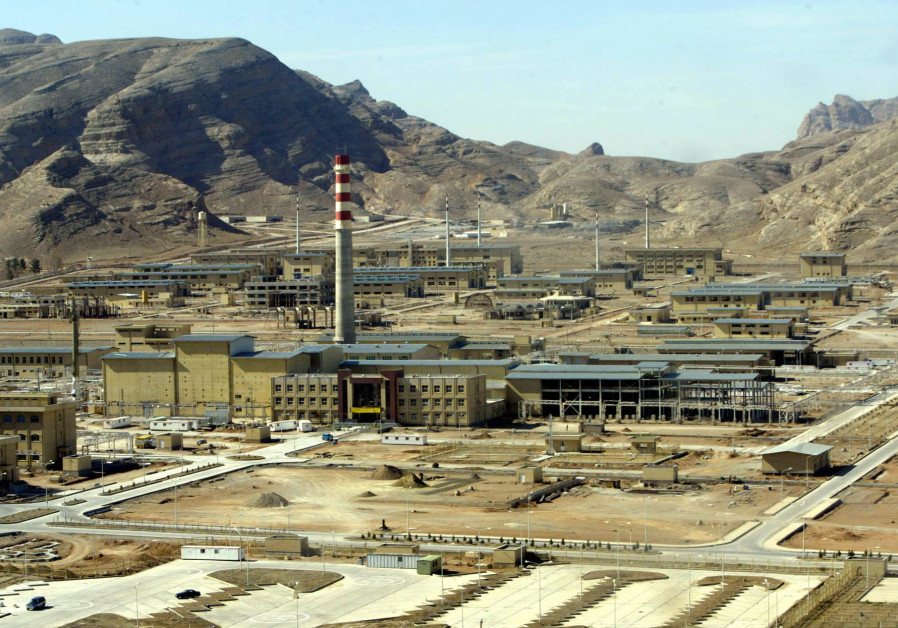After months of hearing US President Donald Trump threaten to tear up the nuclear deal, Iran has escalated its threats at the US and the West in the past few days.

It is down to a game of chicken.
That’s right. The very complicated and crucially important issue of a nuclear Iran, the future of the nuclear deal with the West and security for the West and Israel have come down to a staring contest.
After months of hearing US President Donald Trump threaten to tear up the nuclear deal, Iran has escalated its threats at the US and the West in the past few days.
Iran’s atomic energy agency said on Wednesday that reimposition of sanctions on Iran by the US would violate the nuclear deal and that Tehran would likely respond by increasing its enrichment of uranium.
Trump is expected to decide any day now whether to continue suspending US sanctions on Iran’s oil exports as part of the deal which reduced economic pressure on the Islamic Republic in exchange for restrictions on its nuclear program.
“Iran is ready to increase the speed of its nuclear activities in various areas, especially enrichment, several times more than pre-JCPOA era,” Behrooz Kamalvandi, the deputy chief of the Atomic Energy Organization of Iran, told Iranian national TV on Wednesday.
“If suspension of the sanctions will not be extended, Iran will take the first retaliatory action immediately,” he added.
Prior to that, the head of the Atomic Energy Organization of Iran, Ali Akbar Salehi, had said on Monday that Tehran might reconsider its cooperation with the International Atomic Energy Agency (IAEA) if the US reneged on sanctions relief.
The IAEA is responsible for inspecting Iran’s compliance with the deal’s nuclear restrictions.
Where do these threats leave things?
First, it seems likely that Trump will opt for some kind of middle-of-the-road solution – pushing for sanctions on Iran’s non-nuclear activities which are not part of the deal or kicking the can down the road a few more months for more negotiations in Congress and with Europe.
But Iran’s threats expose each side of the Iran nuclear debate in the US and Israel.
On one hand, it would seem to be the height of foolishness to see if Iran will follow through with its threat and to get an Iran with a nuclear weapon in the near future when it is currently complying with the deal according to both Israeli and US intelligence.
Keeping a watchful eye out for Iranian cheating and being ready to jump on it is far different than blowing up the deal when there is not current evidence of cheating and no plan in place to slow Iran from a sprint to the bomb.
On the other hand, Iran’s threat exposes some of the deal’s shallowness. If Iran can so quickly kick the IAEA out and immediately start enriching uranium at a faster and higher rate of enrichment than pre-deal, what safety has the deal bought?
Don’t Iran’s threats prove the deal’s critics point that the sunset clause, permitting Iran to continue experiments with advanced centrifuges and having Iran disassemble instead of destroy its thousands of centrifuges, means that Iran will be able to walk-out to a nuclear weapon at the end of the deal?
And even as Trump’s threats escalated about the deal, Iran has not reduced its adventurous behavior in the Middle East one iota.
A number of top Israeli and US intelligence officials have told The Jerusalem Post that the US must maneuver Europe and its allies into sanctioning Iran’s Middle East terror and its ballistic missile tests, and then, when the deal is close to winding down, rally global support for extending its nuclear restrictions.
It is unclear if that will resolve the potential Iranian nuclear threat, but Iran’s threats seem to confirm that either exiting the deal now or leaving the deal as is leaves Iran with most of the cards.
As reported by The Jerusalem Post
